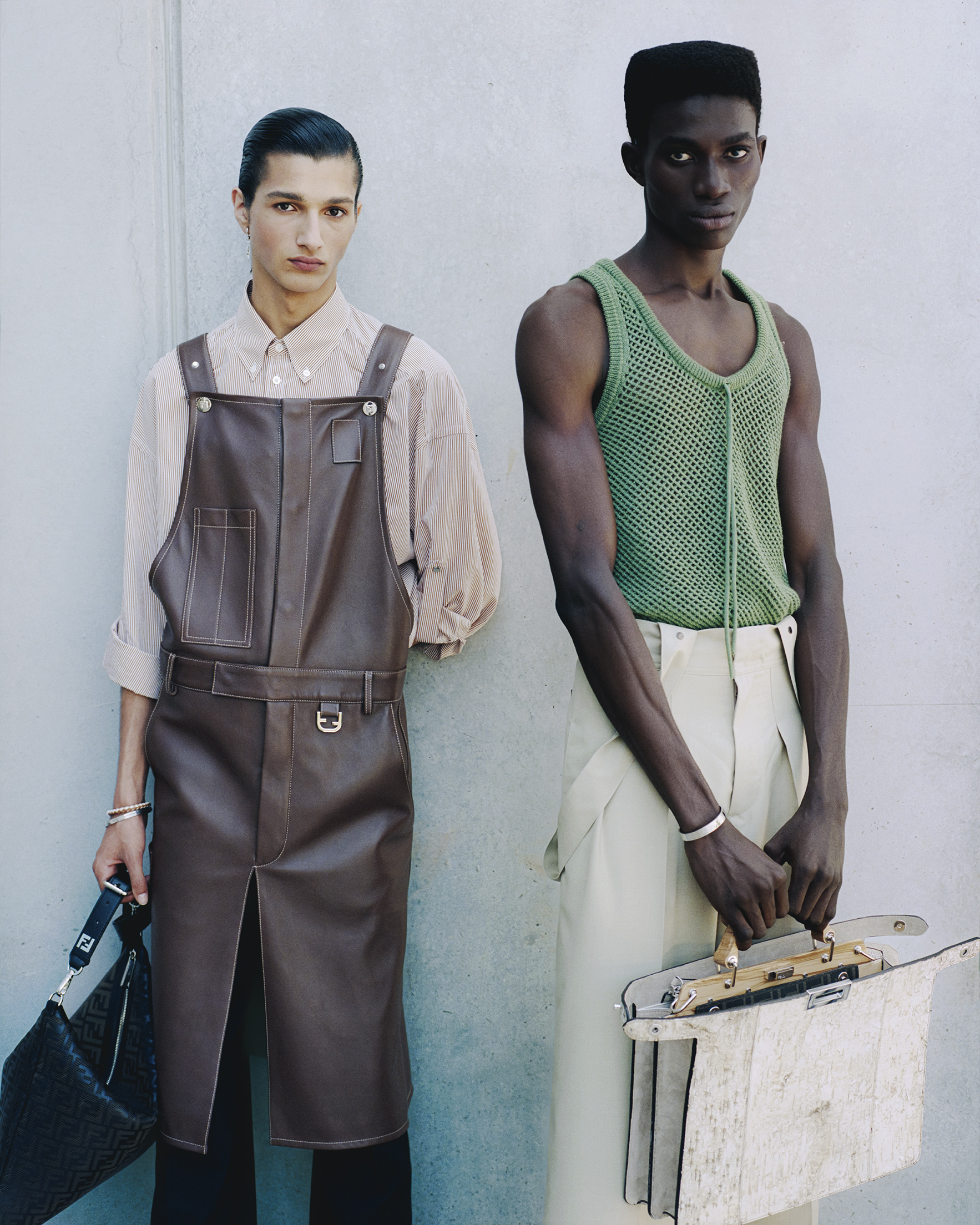When Silvia Venturini Fendi decides to hold Fendi’s latest menswear show during Pitti Uomo, inside their new factory in Bagno a Ripoli, one simply does away with any hesitation or qualms and heads straight towards the Tuscan sun. Why? Rarity. It’s not every day that an established fashion house reveals how the sausage—or, in this case, the baguette— is made.
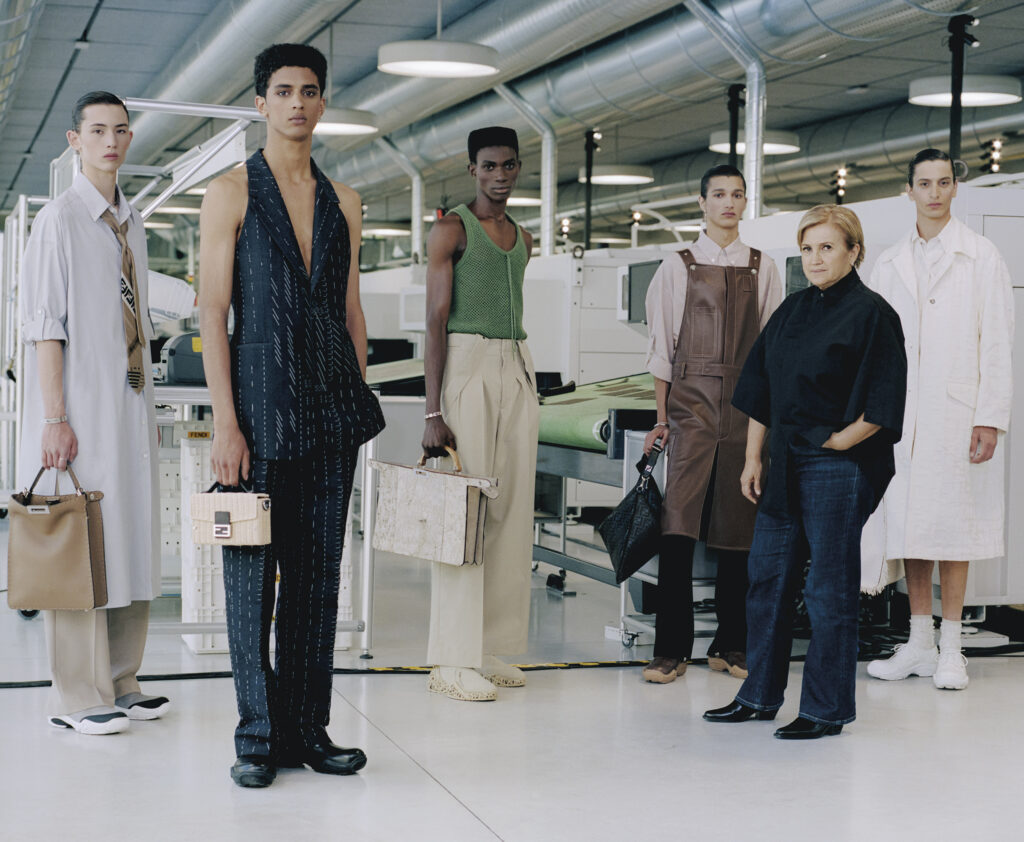
One can think of Silvia’s latest showing like the moment in The Wizard of Oz where Dorothy’s pup Toto pulls back the curtain to show who was really behind the charm of the Emerald City. Only this time, the land of Oz lies on the outskirts of Florence, where a normal working village populated with suburban houses and mom-and-pop shops also serves as home to one of fashion’s most important, LEED Platinum-certified facilities, situated around the corner from those family homes. Once there, one would be surprised to find just how light the space feels–a stark contrast to the concrete facade that welcomes all visitors upon arrival. A botanical oasis enclosed by glass panelings will satisfy any fashion devotee’s craving for a baguette (a Fendi Baguette bag, that is) as it reveals the house’s latest designs as they are being brought to fruition by the hands of local artisans.
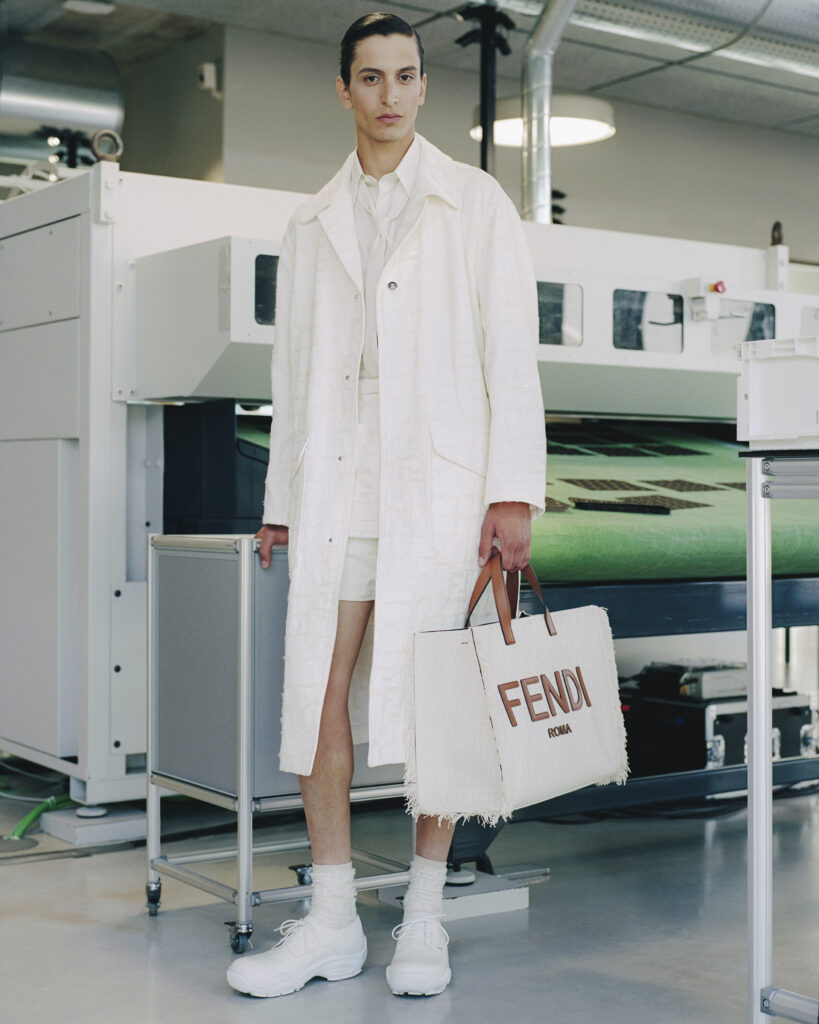
Winding through the factory’s hallways, the sounds of fine Italian leather being laser cut and hammered to perfection by workers (donning “StaFF Only” T-shirts, of course) remind one that a human touch goes into every piece. Alongside carts filled with shipping boxes that read “handle with Fendi care,” a conversation between man and machine echoes the halls where an in-house community of craftspeople comes together to honor a commitment to craft. It’s no wonder why Ms. Fendi brought out all of the factory members to join her bow during the show’s finale. Fendi is not just the Fendi family’s legacy, it is a continuation of centuries of fine Italian craftsmanship. “Here is where our work collides with our sense of family. Sometimes, when a collection is coming, we ask our artisans to work a lot as we develop prototypes and make changes at the last minute, and they are all committed,” explains Ms. Fendi to VMAN. “In fashion, you hear a lot about the designer, and the brand, but to be fully transparent, you should be able to know who makes the items, and in what conditions. That’s what we want to do today.”
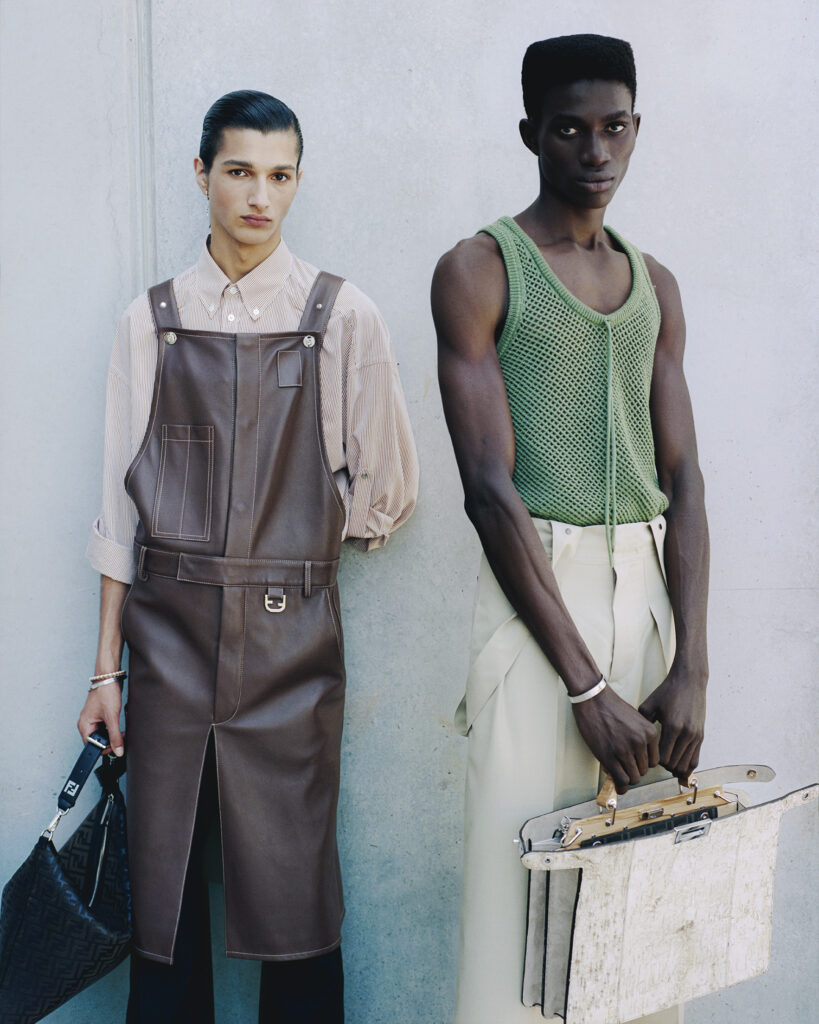
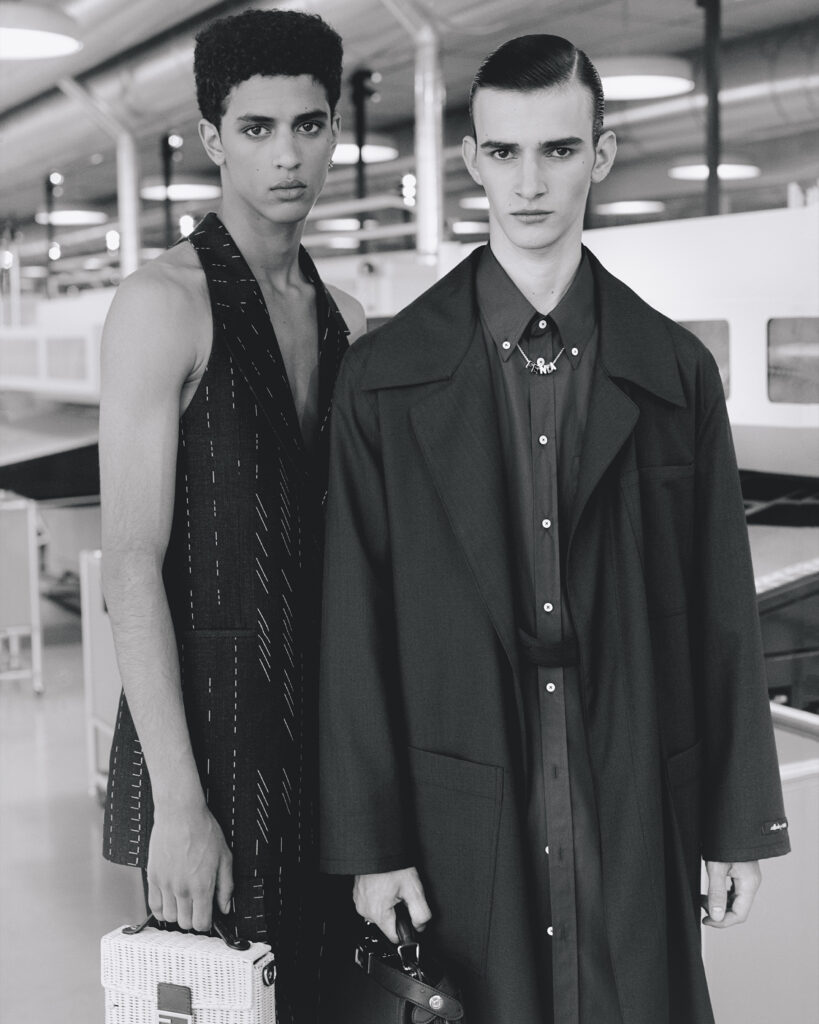
Defined by a homecoming of sorts, as Silvia’s grandmother Adele Fendi traveled from Rome to Florence to master the art of leather craftsmanship nearly a century ago, it only makes sense that the house’s men’s spring/summer 2024 collection sees a reinterpretation of the term “workwear” in a manner that is authentically Fendi. Think looks that feature patch pocket belts equipped with the literal tools of the trade, styled over leather aprons that have been paired alongside logo-emblazoned lunch boxes, coffee cups, and vegetal-dyed carryalls. As an ode to tried-and-true practices, this latest lineup not only solidifies Fendi’s stance on homegrown craft but also signals the need to keep it alive. In an increasingly vapid landscape of fast fashion and microtrends, true transparency seems to be the quality that stands out most in the current climate of style. Luckily for the Fendi family, it seems they’ve been doing it right all along.
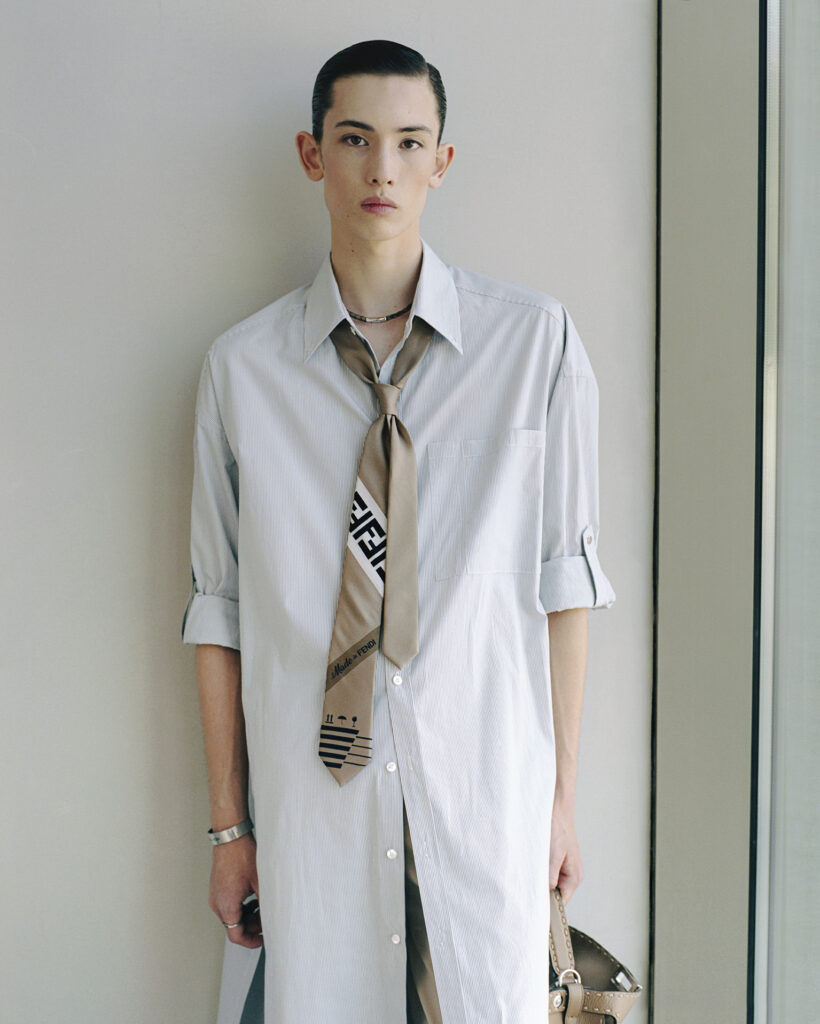
This story appears in the pages of VMAN 52: now available for purchase!
Photographer Alessandro Mannelli
Fashion Direction Gro Curtis
Fashion Roberto Piu
Makeup Daniel Sallstrom (MA+ Group)
Hair Gary Gill (Streeters)
Models Nicola Macchi (Success), Abas Abdirazaq (Known Model Management), Takfarines Bengana (Supa Model Management), Rubuen Bilan-Carroll (Supa Model Management), Hamaam Pelewura (Elite London)
Casting director Piergiorgio Del Moro
Photo assistant Nico Barbieri
Discover More






